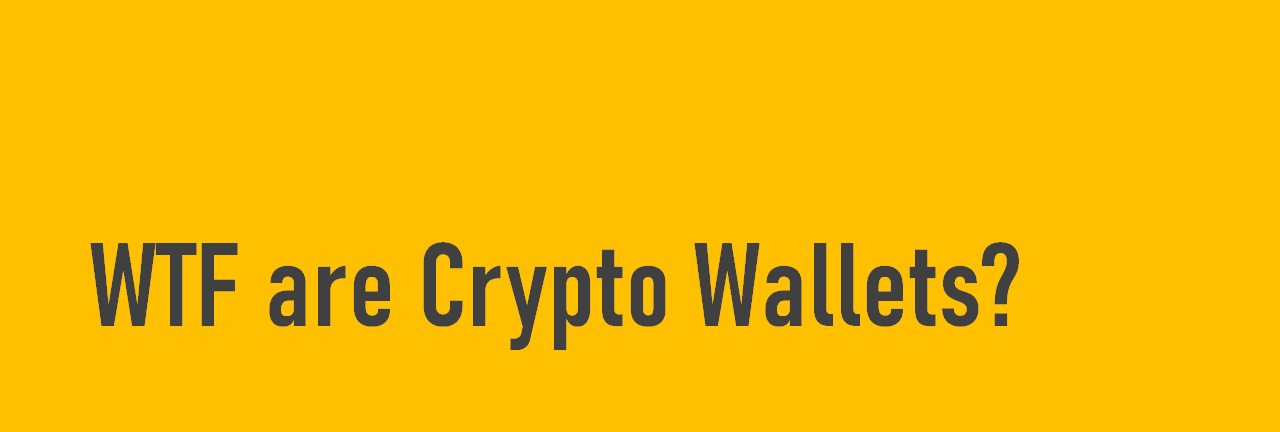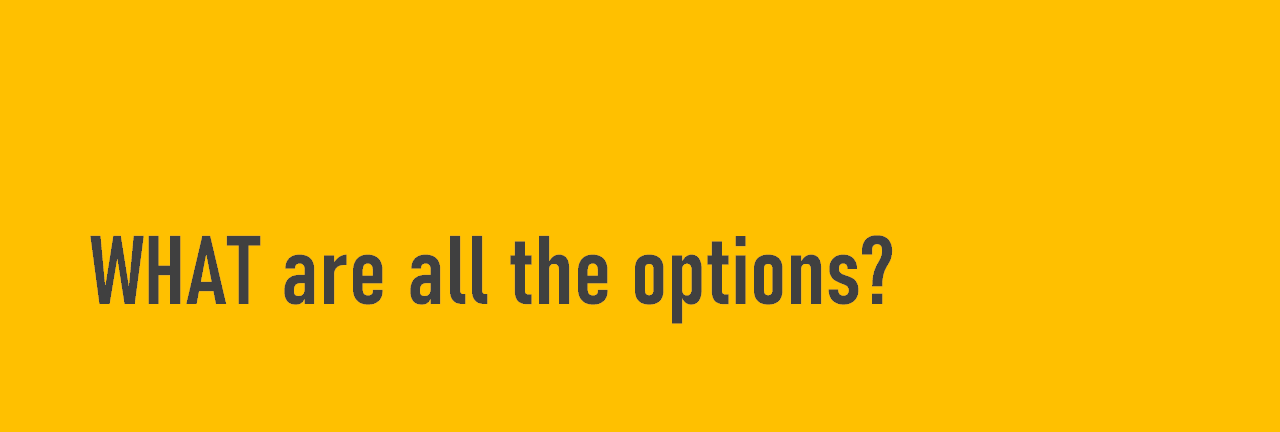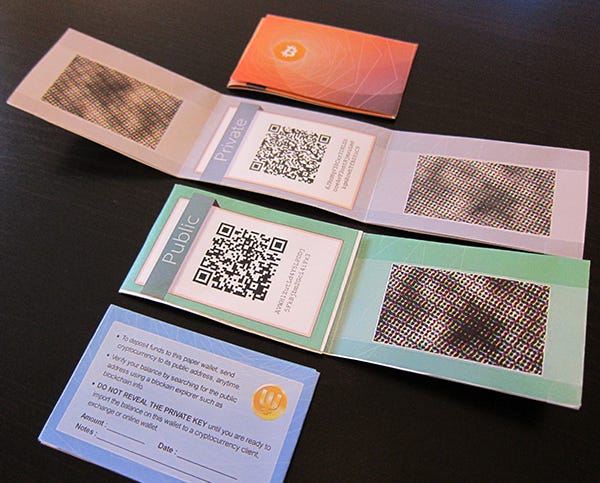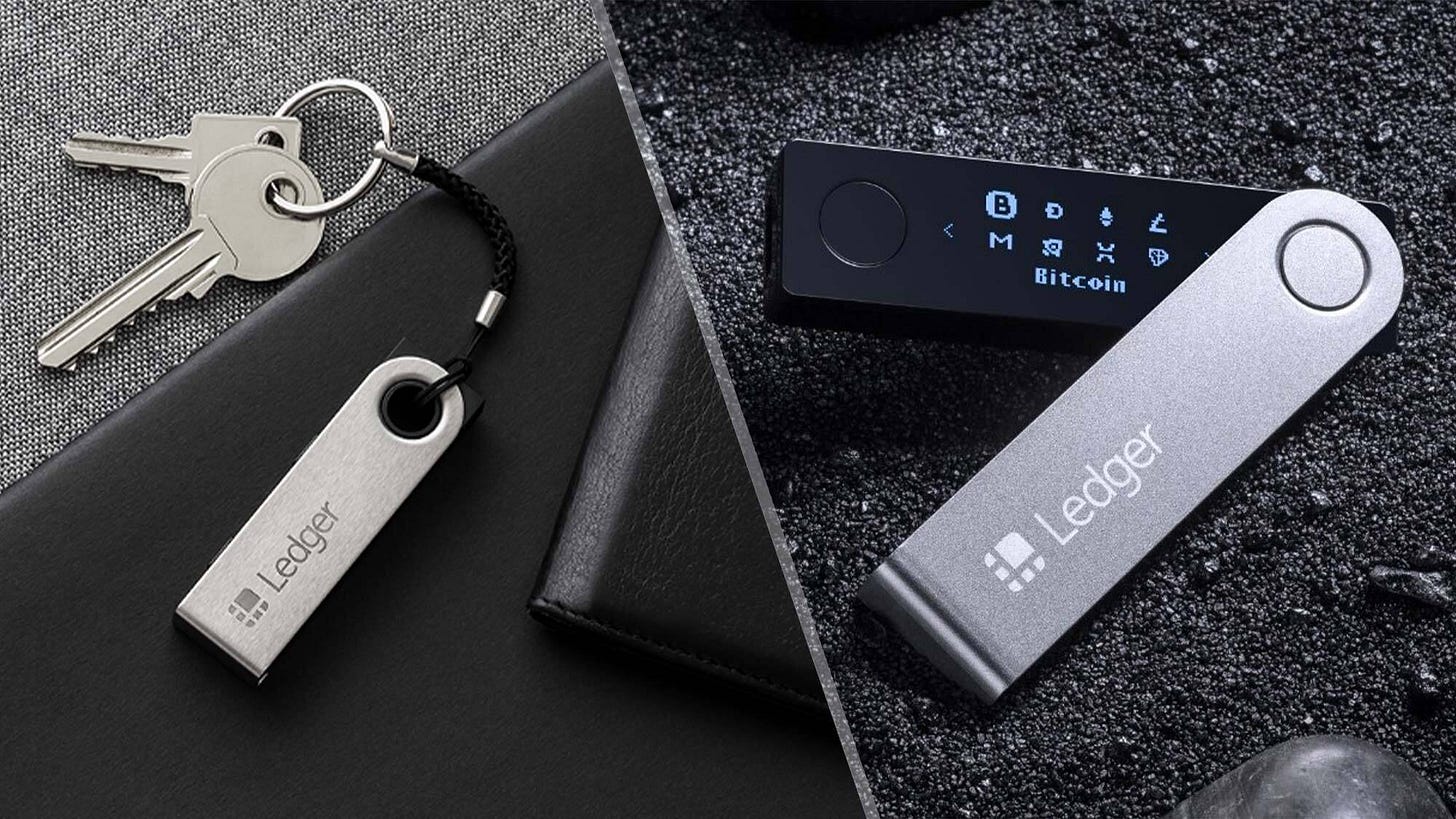Crypto Wallet 100 - The Researched Rant
There's too much noise when it comes to learning about Crypto Wallets. So I've done my best to simplify the approach to get started.
TL;DR: Crypto Wallets are a trade off between physical and digital risk, constrained by cost and use case. No one wallet fits all, but to start use a mobile wallet + an exchange wallet.
Inspired by my conversations around crypto wallets, here’s the researched rant into it. By the way, is it Crypto or crypto?
As always, you can find TL;DRs and graphics as I explain this kerfuffle fascinating set of concepts.
In Case You Missed It
DeFi Yield Farming 100 - It’s CrossFit but for Crypto [Investing]
Cryptomining 100 - What’s it all about?
Sections You Can Skim To
WTF are Crypto Wallets?
WHAT drives me mad?
WHAT do you mean Keys and Custody?
WHAT are all the options?
WHAT’s my approach?
TL;DR: Its like a cash wallet, but with digital risks as a flavor!
Crypto Wallets are exactly what you think it is, with a digital wist. A regular cash wallet (or clip!) is a place for you to store all of your cards (because who is carrying cash), and a crypto wallet is a way to store all your digital-based assets.
The key difference between a cash wallet and a crypto wallet is that because it’s technology driven, and because it’s all supposed to be decentralized, crypto wallets carry an inherent digital or physical risk depending on what kind of wallet you get.
The only challenge is when it comes to choosing a crypto wallet, its impossible to say everything is the same, much like how I say every bag at Louis Vutton is the same. It’s just not a true statement, and it all depends on purpose.
My exploration into different crypto wallet options has driven me mad, so let’s get it.
TL;DR: THERE ARE SO MANY OPTIONS, AND IT FEELS LIKE APPLES VS ORANGES VS MANGOS VS COCONUT
Crypto wallets basically boil down to a tradeoffs between security and convenience.
Security: How secure is it? Who else has access to my wallet? What happens in the event of a hack? What if a bug is found?
Convenience: How easy is it for me to use my Crypto in whatever platform or way I need to? How much does it cost? What if I lose access?
What drives me up a wall about it all is that there are like 6 different options that all have their pros and cons. But the good news is, all 6 options share one conceptual similarity: Keys & Custody. Understand this, and you’ll know what your comfort level will be.
TL;DR: Access to your Crypto relies on keys; convenience relies on custody
I came up with this unofficial phrase of Keys & Custody to understand the underlying mechanics, Crypto is stored at an address - a public key. To prove that you own said Crypto at said address, you need to provide proof of ownership in the form of a private key.
The private-key is crucial and cannot be lost and cannot be replaced. You lose the private-key you lose it forever.
You may elect to have a 3rd party service manage it (in case you lose it, and need to recover funds) - that’s called a Custody / Custodial Arrangement, or you can hold it yourself, which is Non-Custodial Arrangement.
Example of Public Key
You can send stuff to it anonymously (tips appreciated) but that’s it. You need the private-key to access and withdraw from it.
Elaborating on Custody
A custodial arrangement is when a third-party can manages holds controls your private keys - but you also have access to them too. It’s important that you are able to access and see private keys. If you use Robinhood or Venmo to buy Crypto, you do not get access to private-keys, and thus, you don’t own the Crypto. You can tell because you can’t transfer it either.
Why would anyone use a Custodial Wallet?
Convenience and brand, mostly. For example, I’ll use Coinbase to buy Crypto. I like their user experience (and I hate the Crypto.com user experience) and they have insurance coverage on my stuff. For active trades, and maybe short to mid term asset storage, it’s decent and gets the job done.
Why would you choose a Non-Custodial Wallet?
You get complete control over it. But that’s also the problem. You control your crypto using a private key and no one else knows. But without this private key, you can’t access your funds. If you lose this key, you are SOL. We’ve already lost 3 million bitcoins out of a total finite supply of 21 million bitcoin because of it. So it becomes a question of do I trust me, or do I trust others, or can we find a healthy mix or alternative?
TL;DR: A bunch of use case dependent options.
There are two major classes of wallets: Hot and Cold wallets. Probably in a few years the lines will blur.
Hot
Online - Internet Access Required
Very convenient
Not as secure due to inherent 3rd party risk / online vulnerabilities
Cold
Offline - Internet not required
Not as convenient
Secure against cyber threats. Not secure against my own dumbness (physical risk).
Hot Wallet Types
Desktop Wallets
Going to help you out, don’t bother with this one. Not worth it.Mobile Wallets
It’s a phone wallet. Convenience will depend on the app developer, but the good news is it’s usually non-custodial. Comes with all the phone risk (physical risk). If you drop your phone and it dies, good luck- hope you have backup procedures!Online Web Wallets
I consider web wallets anything that’s a plugin to my browser. It’s non-custodial based and really really convenient as they can connect to a lot of things, except also really really vulnerable. Like really vulnerable.Exchange-Based Wallets
Wallets held at exchanges like Crypto.com or Coinbase. Usually convenient since you can trade with all the crypto you are accustomed to, however, there is some nuanced variations between exchanges especially around insurance policy, customer service, and their KYC.
Some confusion: At Coinbase for example, their primary app that you use to buy Crypto flows through their Coinbase Exchange, with your trades contained at Coinbase Exchange. That’s a custodial wallet innately, and you get insurance with that like a bank insures a deposit. Coinbase also has a non-custodial product called Coinbase Wallet. It is not the same as the Exchange. Yes you pay fees from transferring between wallets even if its the same company. Yes it’s confusing.
Generally “safe” to keep actively traded Crypto on exchanges given the usual insurance benefit in the case of theft or cyber breach, but you should double check reputation and policy.
Cold Wallet Types
All cold wallets are non-custodial and highly secure against internet based attacks. However, we trade digital risk for physical risk, or in my case, clumsy risk.
Paper wallets - It’s exactly what you think it is. If you lose the paper, you are SOL. Looks like this:
Hardware Wallets - essentially upscaled USB Keys that contain your crypto assets. Does not share private-key
TL;DR: Depends on use case, and how new you are.
Here’s how I approach it currently:
Are you new and beginning with Crypto? Less than $2.5k in Crypto? Still learning things?
Cool don’t worry about all the noise and just leave your crypto at an exchange + use a mobile wallet. Just double check that they have insurance and recovery options as you are probably going to treat this like any other banking product.
Now as you go through your Crypto learning, here are some specific wallet use cases:
Thinking about staking, or holding long term?
Get a cold wallet like Ledger, and then secure that physical USB somewhere you will never forget. Those are not cheap btw.
Do you need to make a swap or trade on emerging platforms?
You can use Metamask, but only use it when you are ready to make the trade, only send just enough to cover the transaction, and then transfer out. DO NOT USE IT FOR LONG TERM STORAGE, or really any storage greater than an hour. Inherent risk for a product like that is just to high - sure its connected to everything, but its because its connected to everything that should give cause for concern. IT Risk people WYA?
P.S.
Oh by the way, when you buy Crypto on Robinhood or Paypal for example, you don’t get a private-key. That means you don’t own it and you can’t transfer out. So don’t buy crypto there. It all comes back to Re: Custodial. If you don’t get the private-keys, you don’t own it.









This is a great breakdown! Thanks for sharing!